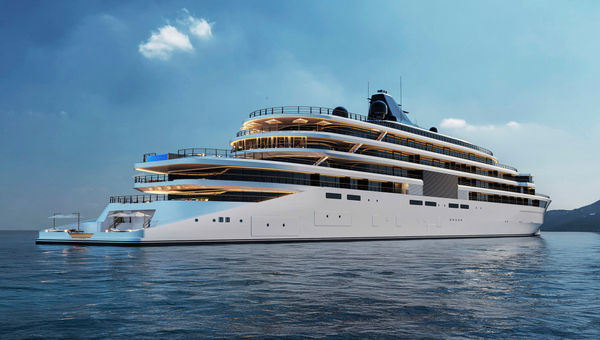Aman may have already converted countless luxury travelers into “Aman junkies,” but the high-end hospitality group is hoping to build an all-new cult following with the opening of the Janu Tokyo this month.
The hotel, which debuted March 13, is the first property to open under Aman’s Janu flag. Named after the Sanskrit word for “soul,” Aman unveiled Janu as a more “energetic” and “playful” sister brand just before the pandemic hit, in early March 2020.
“A new brand gives us a great opportunity to talk to a different audience,” said Anna Nash, chief commercial officer at Aman. “And I very much see it as a great opportunity to appeal to what I would call ‘rising Aman junkies.'”
But rather than closely mirroring the Aman experience, the Janu concept aims to offer something distinct.
Whereas Aman’s 30-plus properties are generally known for their exclusivity and retreat-like atmosphere, a Janu hotel will feel “a bit more inclusive” and “more integrated with the community,” Nash said. At the Janu Tokyo, for example, which is part of central Tokyo’s new Azabudai Hills development, the property houses eight food and beverage outlets that are open to the public as well as guests.
The brand will also differ from a design perspective. Janus will have a penchant for color and patterns, a stark contrast to Aman’s more muted aesthetic. And in terms of size, a Janu property will have a higher room count. While Aman’s urban properties, which include the Aman Tokyo and Aman New York, both offer just over 80 guestrooms, the Janu Tokyo opened with 122.
Lastly, Janu is positioned at a more approachable price point, with Aman playing at a roughly 25% premium to its sister brand.
The two will still share some key commonalities, however, including a focus on elevated service and enhanced wellness offerings.
At the Janu Tokyo, that wellness piece is anchored by the 43,000-square-foot Janu Wellness Centre, featuring amenities like a gym, two pools, a boxing studio and two private “spa houses,” one equipped with a traditional banya and another with its own hammam.
And just like its bigger sister, Janu is poised to expand into both resort and urban markets. According to Nash, Janu already has a “very strong pipeline” of 12 properties.
“We’re really looking at destinations that we know will encourage guests to make a circuit of journeys, like Aman,” said Nash, referring to the way Aman loyalists are often eager to “collect” stays at as many Aman-branded properties as possible.
“People connect with Aman, and there is such an enduring love for the brand,” Nash said. “And I’d like to think that that would be the same experience with Janu, [in that] they’re eager to keep collecting those experiences.”

Aman at sea
A second brand isn’t the only way Aman is shaking up its status quo.
In 2021, the company unveiled plans to enter the cruise segment with the upcoming launch of Aman at Sea, a joint venture with Cruise Saudi, an entity owned by the Kingdom of Saudi Arabia.
Currently under development, Aman at Sea is on track to debut in 2027 with a 50-suite luxury vessel, which Aman said will differentiate itself by offering “an experience more akin to a private super yacht.”
“We see it as an opportunity to connect a number of our resorts, and we also want to look at doing it slightly differently in the way that we’ll be scheduling it and the ability to have flexibility of arrival and departure dates rather than set cruise dates,” said Nash, adding that Aman expects to make itinerary details available by the first quarter of next year.
In addition to multiple dining venues, the vessel will feature amenities like an Aman Spa, a Japanese garden and two helipads.
“We’re really wanting to understand what are the maritime must-dos, and where can we really be creative and put that Aman inflection on it?” Nash said. “I think [there are] lots of lovely learnings sort of coming from both sides to bring about something entirely new.”
